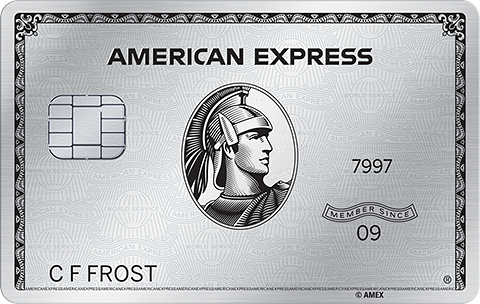What to Do if Your Credit Card Application Gets Denied

Image source: Getty Images
This is a little embarrassing to admit as a credit card aficionado… I've been rejected for not one, but two different credit card applications. It's not very fun. I went through all the stages of grief -- denial, anger, bargaining, even a little depression.
But once the sting wore off, I realized a denial isn't the end of the world. It's a chance to regroup, understand what happened, and come back stronger.
If you know what to look for, that "no" can actually turn into a "yes" the next time you apply.
1. Don't freak out
When I first got the "We regret to inform you…" message, I honestly thought I was financially doomed. I pictured never being able to get a loan, mortgage, or even a new bank account ever again. In my head, my credit report had a big red X stamped across it, one that would take a decade to erase.
But the truth is, the only thing that shows up on your credit report after a rejection is a hard inquiry. Nowhere does it say you were denied.
And I've been approved for several cards since my rejections, and my credit score didn't even take a hit afterwards.
Long story short: don't panic. You're not in trouble. A credit card rejection is more like constructive feedback -- it can make you more aware and ultimately stronger.
2. Find out why you were denied
Credit card issuers are required by law to tell you why they turned you down. This comes in an "adverse action" letter which is posted to you usually within seven to 10 business days.
Some common reasons you might have been denied:
- Too many recent credit inquiries
- High credit utilization (you're using a big percentage of your available credit)
- Limited credit history or not enough accounts
- Low income compared to the card's requirements
- You have too much available credit already
If you read the letter and you're still confused about the exact reason, you might want to call the reconsideration number listed on the notice. My denial letter from Citi was fairly vague, so I needed to ask customer service more about it.
Once you know why you got denied, you can actually do something about it.
Compare our top-rated credit cards here to see which ones may be a better fit for your profile right now.
3. Ask to be reconsidered
If you genuinely think you were denied in error, it's worth picking up the phone and asking the issuer to take another look. This is called a "reconsideration" request. Sometimes a short conversation with a representative can turn things around.
They might even have a creative solution to help you get approved. Like approving you with a smaller credit limit or even shifting part of your credit line from another card you have with them.
It's not a guarantee, but if you make your case politely and explain why you're a good customer, you might be surprised at the outcome.
4. Check your credit report for errors
A recent study from Consumer Reports found that almost half (44%) of consumers that checked their credit reports found errors. And more than a quarter found "serious" mistakes.
You can pull free credit reports from AnnualCreditReport.com. Check for anything that doesn't look right, like accounts you don't recognize or incorrect balances or payment history.
Disputing and fixing an error could give your credit score a helpful boost.
5. Strengthen your application before reapplying
Don't rush back into new applications. Take the time to correct what went wrong so you're not repeating the same mistake on your next application.
If your credit score was too low, focus on building it up. Make on-time payments, lower your balances, and avoid taking on new debt.
If you've applied for too many cards lately, sometimes the fix is as simple as waiting six months before trying again.
Other tweaks can also help, like paying down existing debt to lower your credit utilization. Or reducing certain credit lines might make your profile look cleaner to lenders. And if income was the sticking point, it might be worth waiting until you're in a stronger earning position.
When you apply again, you'll be walking in with a much stronger case.
6. Consider alternatives in the meantime
If you're building (or rebuilding) your credit, a secured credit card can help. They require a small deposit to begin, but as you make payments and show responsible usage, you will have opportunities to upgrade to other rewards cards over time.
There's also the chance that you'll get approved at another bank you have a stronger relationship with. This happened to me. When I was denied for a Citi card, I applied for a Chase card shortly after and got approved.
A credit card denial isn't a permanent mark against you. It's just a signal that something needs attention.
Use the feedback from the issuer, check your reports, make strategic improvements, and try again when you're ready.
Explore our best credit cards to find one you can qualify for and start earning rewards sooner.
Our Research Expert


